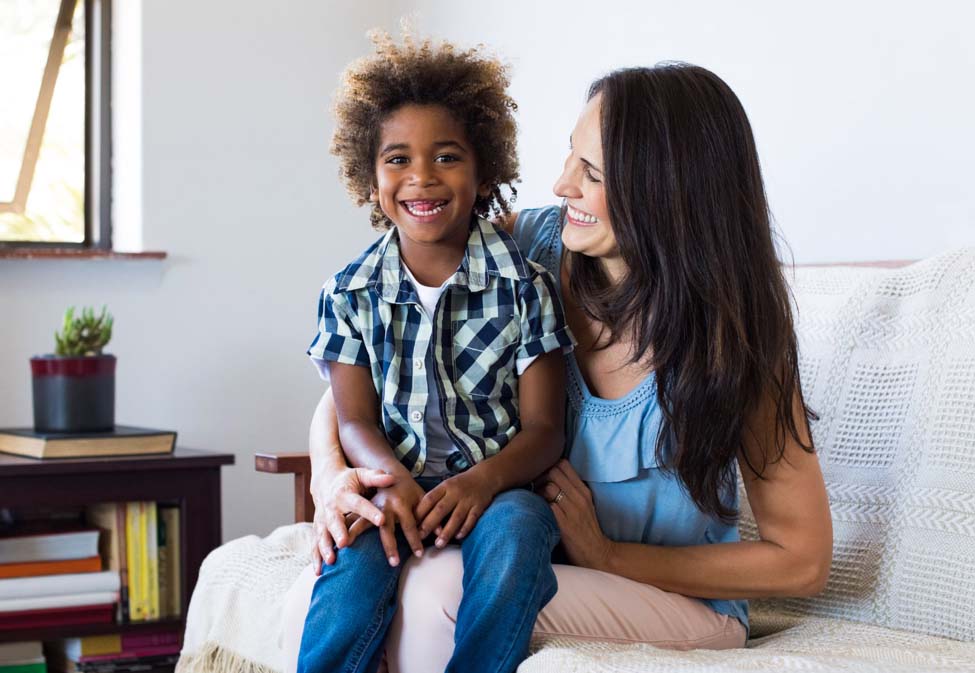When adopting a child, one of the primary concerns for prospective parents is the financial cost. If you are wondering, “How much does adopting a child cost?” then read on for all the information you need.
Adoption can be a beautiful (although challenging and complicated) means of forming and expanding a family. While the anticipation of welcoming a child into the family occupies the majority of prospective parents’ thoughts, there are also financial considerations to keep in mind. Whether you adopt through a registered agency or a private attorney, adopting a child frequently demands a substantial financial commitment. Here is all the information you need regarding the prices of various forms of adoption.
Private Agencies
When placing a child for adoption, birth parents frequently collaborate with private agencies to find adoptive parents. Together, the birth and adoptive parents establish the adoption’s parameters, such as whether it will be closed or open. Commercial agencies, which typically administer both local and international programs, have less stringent criteria than public organizations.
Domestic adoption
According to the Children’s Bureau fact sheet “Planning for Adoption: Understanding the Costs and Resources” from 2022, private adoption costs between $30,000 and $45,000. Legal fees ($1,500–$4,500), court paperwork fees ($500–$2,000), home studies ($1,000–$3,000), counseling and medical expenses for birth parents, training for adoptive parents, and interim child care are included in the cost range. Speak with the private agencies you’re considering for a more detailed breakdown of the fees associated with your circumstance.
International adoption
Overseas adoptions are typically more expensive than domestic adoptions because parents must arrange the additional costs of travel, immigration, and paperwork. The Children’s Bureau predicts that adopting a kid from another nation will cost between $20,000 and $50,000.
Public Agencies
Adopters utilizing the foster care system will engage with a government agency. Governmental institutions typically have more stringent regulations than private agencies. They frequently need criminal and medical background investigations, parenting classes, home studies, court orders, and more. Nonetheless, there is a higher possibility for aid and other resources to assist in reducing adoption expenses.
Adopting a waiting child
Governmental agencies connect potential adoptive parents with children in state custody whose birth parents’ rights have been forfeited or terminated and who are awaiting adoption.
Adoption aid programs financed by the government help pay legal and professional fees for these adoptions. If you are adopting a child with special needs, you may be eligible for federal or state subsidies. Remember that the term “special needs” includes mental and physical health issues, as well as age, background, and the requirement to be adopted with a sibling.
According to a 2016–2017 poll by Adoptive Families Magazine, the average cost of adopting a child from foster care is $2,938.
Fostering to adopt
In a foster-to-adopt arrangement, prospective adoptive parents become foster parents and agree to care for children who have entered the foster care system (but whose parents’ rights have not been terminated) with the intention of adopting one day. It is essential to highlight, however, that the ultimate purpose of foster care is to reunite children with their biological parents; therefore, the opportunity to adopt is never guaranteed, and all foster parents are required to assist reunification efforts.
According to the Children’s Bureau, the financial costs of adopting a child after fostering them are typically much lower than those of private adoptions. In some cases, they are even free. The government gives foster parents with a monthly stipend for child care during fostering, and if adoption is granted, legal and professional expenditures are covered. The $2,938 public adoption cost estimate from the Adoptive Families Magazine poll applies here as well.
Independent Adoption
Independent adoptions do not involve an adoption agency, allowing for greater personalization. Prospective parents (or their attorneys) establish arrangements with birth parents. Not all states permit independent adoption, and the birth parent may change their mind once the child is born. Also, there are less safeguards in place for this form of adoption.
According to a 2018 datasheet by the legal information website FindLaw, independent adoption costs range from $8,000 to $40,000 or more. The Children’s Bureau believes that independent adoptions will cost between $25,000 and $45,000, if not more. This cost includes legal fees (since parents work closely with an attorney), court and medical bills for birth parents, as well as a home study. According to the Children’s Bureau, advertising to find pregnant parents increases costs.
Resources to Reduce Adoption Costs
To minimize the burden of adoption costs, prospective parents should utilize available services. They consist of employee benefits, tax credits, loans, and grants.
1. Employee advantages
Several businesses provide benefits for parents, including financial aid, counseling, and parental leave; sometimes, these perks also apply to adoptive parents. According to the Child Welfare Information Gateway, almost fifty percent of businesses offer adoption benefits. Contact your department of human resources for additional information.
2. Tax credits
According to the Children’s Bureau, adoptive parents may be eligible for federal tax credits for the year in which the adoption is finalized. The actual amount depends on variables such as the child’s income and disability status. Please visit the IRS website for additional information about adoption credit and help. State tax credits may also be available to parents who utilize public services.
3. Grants and loans
Check out the funding page on the Child Welfare Information Gateway to learn if you are eligible for loans and grants, which vary based on various factors.
Meaningful articles you might like: 5 Ways To Improve Your Parent-Child Relationship, 4 Ways To Start A Positive Parenting Routine, Effective Stepparenting Tips

